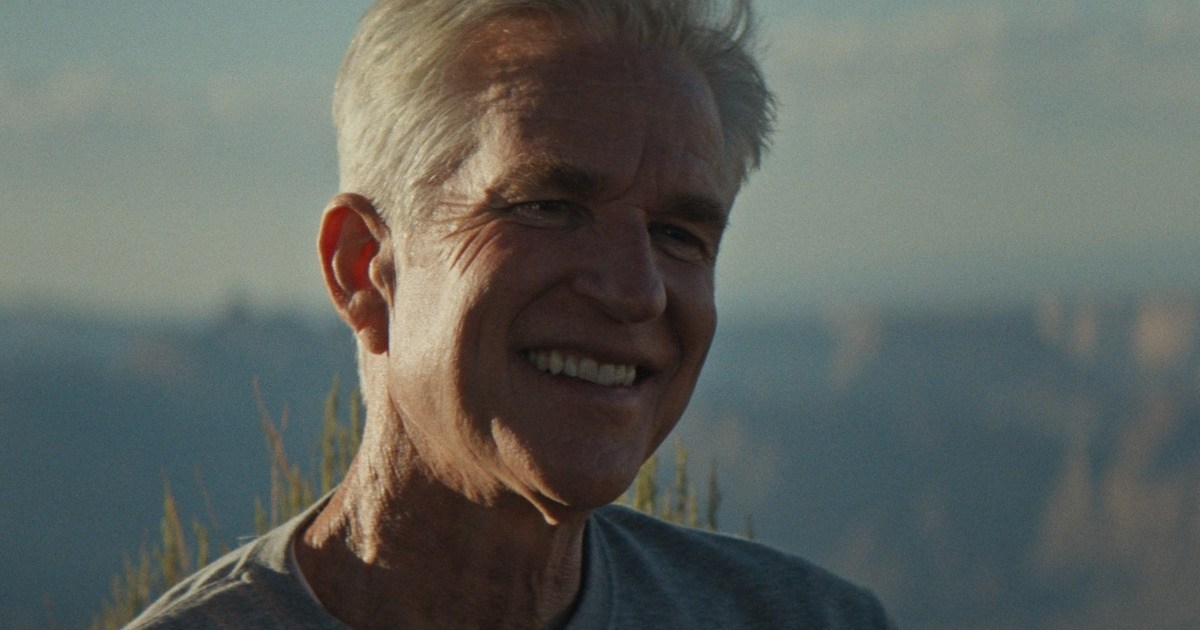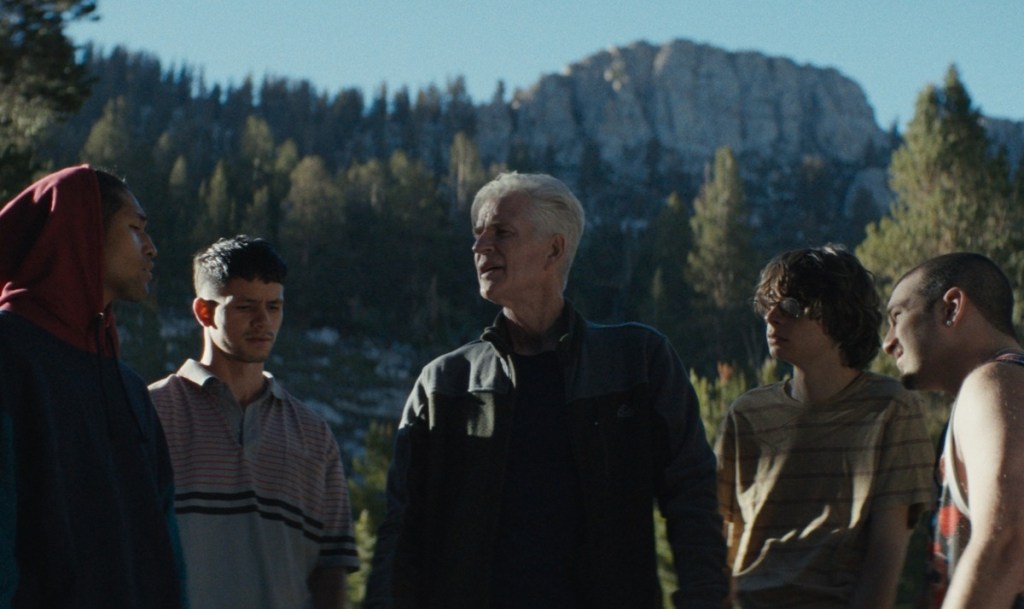
Hard Miles Interview: Matthew Modine on Cycling & Changing Lives
ComingSoon Editor-in-Chief Tyler Treese spoke with Hard Miles star Matthew Modine about the upcoming sport drama movie. The actor discussed the real-life story behind the film and what it was like to bike so much during production. Hard Miles is set to release in theaters nationwide on Friday, April 19.
“Hard Miles tells the uplifting true story of the bicycling team at Rite of Passage’s RidgeView Academy, a medium-security correctional school in Colorado,” reads the movie‘s synopsis. “The film follows beleaguered coach Greg Townsend (Matthew Modine) as he rounds up an unlikely crew of incarcerated students for a seemingly impossible bike ride from Denver to the Grand Canyon.”
Tyler Treese: You’re pretty famously into cycling. You’ve been very outspoken about riding a bike throughout New York and such, and this also blends social issues and redemption. I thought this was a perfect fit for you. Can you speak to how this came about and how you got involved with this film? It seems perfect.
Matthew Modine: R.J. Daniel Hanna and I had worked together on a film previously called Miss Virginia, and I just really loved him. He is a young filmmaker trying to find his voice and his unique style. So we had such a good time collaborating on Miss Virginia that when he sent this script to me, it was an easy yes. In addition to the fact that I was going to get to work with Daniel. He and Christian Sander had written such a terrific script about this man’s personal journey, but also this incredible journey that these four young people go on. It was funny. It was poignant, and, most importantly, it has a foundation with great moral integrity.
I was born in California. I grew up in Utah, and Utah was still pretty sparsely populated when I lived there as a boy. It was important to have kind of a pioneer spirit that, when you see someone who’s broken down on the side of the road, it’s really important to pull over and help them. When you see somebody who’s slipped or fallen and when they’re going through a difficult time, how important it is to help them, to give them an opportunity to get up and get back on their feet, to do what you can to help your fellow traveler.
So this script and Greg Townsend, the real-life Greg Townsend, were manifestations of things that I’ve been taught growing up as a boy. So it was just, really, a wonderful opportunity for me to share things that I learned in my childhood and have practiced throughout my life.
The true story behind this is incredible. Did you get to meet Greg Townsend and talk to him before filming?
Yeah, Greg Townsend was with us every mile of the journey. It was funny because we were all pretty exhausted after a day of filming and we’d get in the van, all of us together, and climb up the mountain and get ready to go to work. And Greg Townsend would ride a bicycle and sometimes he’d have a hundred miles in before he had his breakfast, you know? So he was there with us all along the journey and shared stories from his real life to inspire me and help give me guidance along the way.
There is a bittersweet element as the film points out at the end that the real-life Ridgeview Academy was shut down recently. It’s great to be celebrating what did occur and the lives that were changed, and it’s a real shame, as you’d think an academy like that should be what we’re investing in and helping better the lives of youth. To see it get shut down adds a very bittersweet element to this.
I couldn’t agree with you more. I mean, it’s so important because most of the mistakes that kids make when in their youth are probably between 14 and 18 years old. So you could make a mistake, which you’d have to carry with you throughout your life as a kind of scar that you wouldn’t be able to escape. It’s just terrible. We shouldn’t do that, to punish a child for his entire life for a mistake that they made stupidly in their youth, you know? So these reform schools that and programs like what Greg was able to create are kind of like when you get a horse and you put the blinders on the horse, the horse is only able to see what’s right in front of them.
And so for these kids, that might be the gang that they were in, the troubled home that they were in. So what a program like this has the opportunity to do, and what Greg Townsend was successful in doing, was pulling those blinders away so that the children, the young people, could see that the world is much bigger than that gang. It’s much bigger than the troubled home that they were living in — that the world’s a big place. So what he successfully did was help those people up and help them get back on their feet and live productive lives.

We have this wonderful line in the film where you say, “These aren’t teenage inmates, they’re students.” I think that was so beautifully put in the film. I imagine one of the thrills of getting to do this movie was getting to work with so many talented young actors as well. This seemed like a very physically demanding role as well. How was it working with that team and the camaraderie that sprouted up from you all biking together?
I would include Cynthia Kaye McWilliams in that group. Her character sees the world as it is and Greg Townsend really sees the world as he hopes it could be. Like she says, “When you want to shape metal, you have to pound it.” And he says, “You can’t beat the kids into a form or into a shape.” But Cynthia McWilliams, Jahking Guillory, Damien Diaz, Jackson Kelly, and Zachary T. Robbins — these are really wonderful actors that have bright futures ahead of them. We all changed together. We were together, really, as a peloton all throughout the making of the movie because they didn’t have backgrounds in riding bicycles.
So we were all together during that training process. And then, of course, every day of the journey, every mile that we rode, we were together and working together. The good news is that we didn’t have to act so much but we had to react to the circumstances of what we were faced with, whether it was the sun, the miles that we were riding, or the wind that we were pushing our bikes through. It’s a kind of movie that that will affect all of our lives for the rest of our lives.
You were just in Oppenheimer, which was fantastic, and it was great to see you reunite with Christopher Nolan. Since you’ve worked with so many great directors, what is it about Nolan that stands out to you? What’s special about him?
What I say about directors is they all make love. They all just do it a little bit differently, you know? So Christopher Nolan does it a little bit differently than Robert Altman or Alan Parker or John Schlesinger or Stanley Kubrick, you know? He does it different than our director on this movie, Daniel Hanna. They’re basically doing the same thing, but all of them just a little bit differently. I think that Christopher Nolan … a lot of times people say he is the new Stanley Kubrick. I don’t think Christopher Nolan has any desire to be the new Stanley Kubrick or the next Stanley Kubrick. What Christopher Nolan is focusing on is being the best Christopher Nolan that he can be, and that’s the most important thing. It would be like if I tried to act like Marlon Brando — I would never be Marlon Brando.
I would be an imitation of somebody that’s mimicking Marlon Brando. What I have to do in my life as an actor is to be the best Matthew Modine I can be. So it was really wonderful to reunite with Chris and and his wife Emma, and to make such an important film — especially today, where it feels like we’re, again, entering into a period of a Cold War and the threat of nuclear annihilation. It seems to be something that is not in the distant past but has become part of our presence. They’re horrible machines of war that just have no place in a civilized society.
Source: Comingsoon.net
